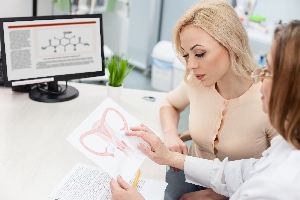
Millions of American women experience endometriosis, a chronic condition that results in pelvic pain. Unfortunately, these women are also more likely to experience infertility or have trouble getting pregnant. While common, endometriosis is still not fully understood by many people. Here are the answers to some frequently asked questions about the condition.
A Guide to Endometriosis
What is endometriosis?
Endometriosis occurs when tissue that is similar to the tissue that lines the woman's uterus grows outside of the uterus. It most typically affects the ovaries and fallopian tubes, but in rare cases, it may be found outside the pelvic area. Every cycle, the misplaced endometrium may break down and bleed, leading to inflammation and scarring of the tissue around it.
What are the symptoms?
Symptoms of endometriosis include:
- Severe menstrual cramps
- Heavy or abnormal menstrual flow
- Pain during intercourse
- Painful bowel movements and urination
- Infertility or difficulty getting pregnant
- Gastrointestinal problems, such as diarrhea, constipation, or nausea
What are the causes and risk factors?

Doctors remain uncertain about the exact causes of endometriosis. One possibility is retrograde menstruation, in which endometrial cells travel back through the fallopian tubes and into the pelvic cavity. Genetics also likely plays a role, as the condition often afflicts members of the same immediate family.
Risk factors include age, such as being in your 20s and 30s, getting your period before age 12, experiencing longer periods of more than seven days, or having shorter cycles of less than 27 days, high levels of estrogen, uterine growths such as fibroids, and immune system disorders.
How is it treated?
Currently, endometriosis has no known cure. Initial treatments are likely to include non-steroidal anti-inflammatory drugs (NSAIDs) or hormonal therapy in the form of birth control pills or an IUD. In severe cases, a doctor can remove endrometrial growths via laparoscopy or traditional abdominal surgery. In the most extreme cases, they may suggest a hysterectomy with the removal of the ovaries. However, this does not guarantee pain relief.
If you experience endometriosis, get personalized and compassionate care from Paula Korn ANP. For more than 25 years, the certified nurse practitioner has provided a range of women’s health services to patients in Anchorage, AK, and the surrounding areas. They offer medical solutions and treatment plans for infertility, menopause, and birth control. As a midwife, she sees patients from pregnancy through birth, along with the postnatal period. Call (907) 277-2597 to schedule an appointment or visit her website for more information.
About the Business
(4 reviews)
Have a question? Ask the experts!
Send your question

